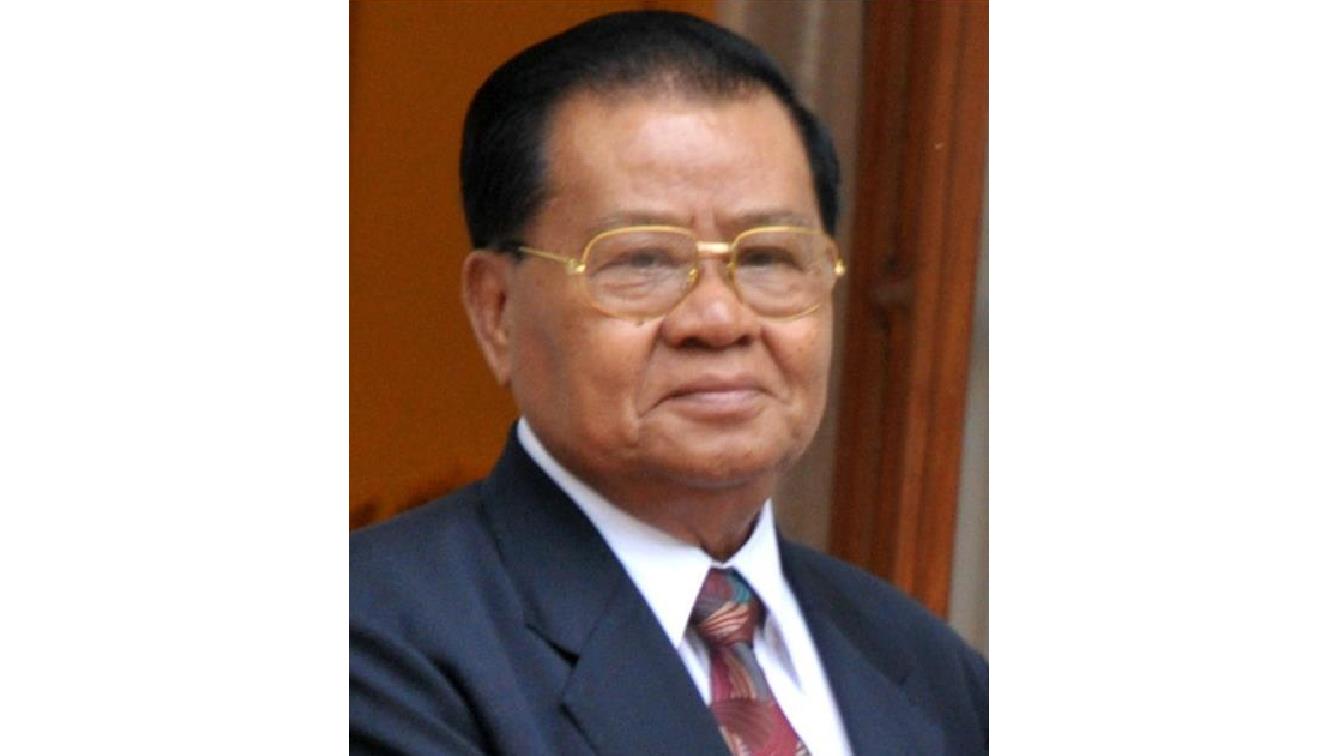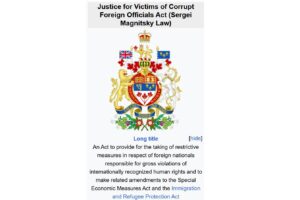For decades, the world watched as Myanmar descended into cycles of brutal violence against its Muslim minorities, culminating in the horrific genocide of the Rohingya people. While recent military leaders face scrutiny, true accountability demands, we confront the mastermind who laid the ideological and operational groundwork for this persecution: retired Senior General Than Shwe.
A meticulous legal assessment reveals that Than Shwe, Myanmar’s former head of state and military commander (1992-2011), is not merely a figure from a dark past, but the primary architect of a system designed to eradicate Muslim communities, particularly the Rohingya. Justice requires piercing the veil of his retirement and confronting his enduring legacy of hate.
Than Shwe: The Ideological Engineer and Operational Commander
Than Shwe’s culpability begins at the source. His background in military propaganda wasn’t incidental; it was foundational to his reign. He actively cultivated an ideology of Buddhist supremacy and virulent Islamophobia within the state apparatus. This wasn’t passive tolerance of extremism; it was state sponsorship. Evidence strongly suggests he covertly nurtured and directed the very hate groups – like the notorious Ma Ba Tha and 969 movements – that became the public face of anti-Muslim vitriol, providing them ideological cover and operational space.
Under his direct command as Commander-in-Chief, and critically, through his continued shadow influence after his 2011 retirement, Myanmar witnessed a relentless campaign of state-sponsored violence. The massacres and expulsions weren’t isolated incidents or spontaneous riots; they were systematic. From Meiktila and Mandalay to Taung Goke and repeatedly across Rakhine State, the pattern was clear: state forces and their proxy extremists targeted Muslim communities with impunity.
Burma Military regime initiated the legal erasure of the Rohingya through the discriminatory 1982 Citizenship Law, a policy weaponized to render them stateless and vulnerable. The genocidal intent crystallized through subsequent military operations under successive governments, designed not just to suppress, but to destroy.
The Machinery of Genocide and the Facade of Transition
Than Shwe’s genius for control extended beyond active command. He meticulously engineered political transitions, installing figures like Thein Sein and ensuring the dominance of the USDP, specifically to shield himself and his legacy from accountability.
This wasn’t a retreat; it was a strategic repositioning. The anti-Muslim policies, the institutionalized discrimination, the violence – it all continued unabated under his watchful, albeit unofficial, guidance. The “democratic transition” became a carefully orchestrated smokescreen for enduring military dominance and the continuation of his brutal agenda against Muslim minorities.
The Weight of Evidence and the Mandate of International Law
The case against Than Shwe is not built on conjecture, but on a substantial body of evidence:
- Documentary Trail: Official propaganda, internal communications (where available), social media archives, and extensive NGO reporting (Human Rights Watch, Amnesty International, Reuters) consistently link state actions and hate speech campaigns back to the structures established under Than Shwe. Historical records detail mosque demolitions beginning as early as 2001/2002, part of a sustained campaign of religious persecution.
- Survivor Testimonies: Harrowing accounts from Rakhine State and other affected regions repeatedly describe coordinated attacks involving military units and extremist mobs, operating in areas where Than Shwe’s sponsored groups held sway.
- Legal Frameworks: The 1982 Citizenship Law and later “Race and Religion Protection Laws” enacted under his proxy, Thein Sein, provide clear evidence of state-sanctioned discrimination intended to marginalize and ultimately eliminate the Rohingya identity.
- International Findings: The UN Fact-Finding Mission on Myanmar explicitly implicated the highest levels of the Tatmadaw leadership in crimes against humanity and genocide – leadership that was shaped by and remained loyal to Than Shwe.
International law provides clear pathways for holding him responsible:
- Rome Statute (ICC): Articles 6 (Genocide) and 7 (Crimes Against Humanity) directly cover the mass killings, rape, displacement, and persecution inflicted upon the Rohingya and other Muslims. Article 25 establishes individual criminal responsibility for those who order, solicit, or intentionally facilitate such crimes – a description fitting Than Shwe’s role as the system’s architect and overseer.
- Genocide Convention (1948): The systematic destruction of the Rohingya group, evidenced by mass killings, causing serious bodily/mental harm, inflicting conditions of life calculated to destroy them, imposing measures to prevent births, and forcibly transferring children, meets the definition. Than Shwe’s policies demonstrably intended this destruction.
- Command Responsibility: Customary international law holds superiors liable for crimes committed by subordinates if they knew, or should have known, about them and failed to prevent or punish the perpetrators. As the ultimate commander and later the de facto power behind the throne, this doctrine squarely applies to Than Shwe.
The Imperative for Action: No Safe Haven for Architects of Genocide
The passage of time and the facade of retirement cannot be allowed to grant Than Shwe impunity. The victims – the Rohingya driven into squalid camps in Bangladesh, the Muslim communities terrorized across Myanmar, the thousands murdered and raped – demand justice. This requires concrete, coordinated international action:
- ICC Prosecution: A comprehensive dossier meticulously detailing Than Shwe’s command responsibility and direct role in planning and executing these crimes must be submitted to the ICC Prosecutor. His position as the architect makes him a primary target.
- UN Security Council Referral: Since Myanmar is not an ICC member state, a UNSC referral is essential to grant the Court jurisdiction. This necessitates a sustained diplomatic campaign to overcome political hurdles, particularly from potential veto-wielders influenced by Myanmar.
- International Arrest Warrant: The ICC Prosecutor should seek an arrest warrant for Than Shwe. Concurrently, efforts should pursue an Interpol Red Notice to restrict his movement and increase pressure.
- Universal Jurisdiction: Countries like Bangladesh and Malaysia, hosting large Rohingya refugee populations, should be encouraged and supported to investigate and potentially prosecute Than Shwe under their own universal jurisdiction laws.
- Targeted Sanctions: Global Magnitsky-style sanctions must be leveraged to freeze Than Shwe’s assets and those of his family network, and impose travel bans, directly targeting his comfort and influence.
- Inclusion in Transitional Justice: Any future genuine democratic transition in Myanmar must include mechanisms specifically designed to address Than Shwe’s central role. Truth commissions and reparations programs will be incomplete without confronting his legacy.
Conclusion: Justice Delayed is Justice Denied
Senior General Than Shwe is not a relic, but the root.
His calculated use of propaganda, his creation and manipulation of extremist movements, his implementation of discriminatory laws, and his command over a military apparatus that committed genocide constitute a clear case for legal accountability under international law.
The suffering of Myanmar’s Muslim communities, most catastrophically the Rohingya, is inextricably linked to the systems he built and the hatred he institutionalized.
The international community – the ICC, the UN Security Council, and individual nations committed to human rights and the rule of law – must act decisively. Allowing Than Shwe to live out his days in impunity would be a profound betrayal of the victims and a dangerous signal that the architects of genocide can escape consequences.
The time for legal action against the primary architect of Myanmar’s anti-Muslim atrocities and the Rohingya genocide is now. Justice cannot wait.
Lwin Oo
“စာဖတ်နေသူကြီး”
ဖေဖေါ်ဝါရီ (၂) ရက်ကစစ်အာဏာရှင်ဟောင်းဗိုလ်သန်းရွှေရဲ့ (၉၃) နှစ်မြောက်မွေးနေ့ဖြစ်ပါတယ်။
“လမ်းကြောင်းမှန်ပေါ်ရောက်နေပြီ …အလားအလားကောင်းတွေ့နေရပြီ .. မောင်တို့မယ်တို့”
သူအုပ်ချုပ်ခဲ့တဲ့ နှစ် ၂၀ အတွင်းဒါမျိုးချွေးသိပ်စကားပဲဗိုလ်သန်းရွှေဆီကအမြဲလိုလိုကြားခဲ့ရပြီးနောက်ဆုံးမှာတိုင်းပြည်အခုဘာဖြစ်နေလဲလူတိုင်းသိကြတယ်။
၁၉၉၅ သိမ်ကြီးစျေး (C) ရုံမှာလုပ်တဲ့ကုန်စည်ပြပွဲမှာဗိုလ်သန်းရွှေကိုအနီးကပ်မြင်ခဲ့ဖူးတယ်။ဘေးနားမှာကျီးကန်းမျက်လုံးနဲ့ဩဇာကြီးဗိုလ်ခင်ညွှန့်။အဲ့ဒီတုံးကကျနော်တို့ကုမ္ပဏီက သစ်အခြေခံစက်ပစ္စည်း (Wood Working Machine) ပြခန်း။
ကျနော်တို့ပြခန်းကိုဗိုလ်သန်းရွှေတချက်ကြည့်ပြီးကျော်သွားတယ်။ ဗိုလ်သန်းရွှေကိုယ်တိုင်လာတော့သူ့နောက်မှာမြန်မာ့ထိပ်တန်းဗိုလ်ချုပ်တန်းစီနေတယ်။အဲ့ဒီတုံးကကုန်သွယ်ရေးဝန်ကြီးဗိုလ်ထွန်းကြည်၊ဒု-ဝန်ကြီးကနာမည်ကျော်ဗိုလ်အောင်သောင်း။ကျနော်တို့ကပ်ရပ်ကုန်စည်ပြခန်းကပြည်တွင်းဖြစ်လေမှုတ်စက်ပြခန်း၊ဗိုလ်သန်းရွှေကလေမှုတ်စက်ကိုတချက်ဝှေ့ကြည့်ပြီး။
“မင်းတို့ရောင်းကောရောင်းရရဲ့လား”
“ရောင်းရပါတယ်ခင်ဗျ”
ဗိုလ်သန်းရွှေက “အေးကွ.. ပြည်တွင်းဖြစ်ကိုဒို့တွေအားပေးတယ်ကွ” “ဒါမှသွင်းကုန်အစားထိုးနိုင်ပြီးနိုင်ငံခြားသုံးငွေသက်သာမှာ…ကြိုးစားကြစမ်းပါ” ပြောတာကြားခဲ့ရတယ်။အကြားအမြင်များတဲ့သူငယ်ချင်းတယောက်နဲ့ဆုံတော့အဲ့ဒီအကြောင်းပြောဖြစ်ခဲ့တယ်။
“သူ့ (ဗိုလ်သန်းရွှေ) အိမ်မှာကောရေတင်ရင်ပြည်တွင်းဖြစ်လေမှုတ်စက်သုံးပါ့မလား ”
“ဟ..ဘယ်သုံးပါ့မလဲ….နိုင်ငံခြားဖြစ် Air-compressor အကောင်းစားပဲသုံးတာပေ့ါ” ပြန်ပြောခဲ့တယ်။
“၁၉၉၀ ထဲကရွေးကောက်ပွဲရလဒ်အတိုင်းစစ်တပ်နဲ့နိုင်ငံရေးသမားညှိညှိနိူင်းနိူင်းပြုပြင်ပြောင်းလဲခဲ့ရင်ကျနော်တို့အခုလောက်ပင်ပင်ပန်းပန်းမရုန်းကန်ရဘူးထင်တယ်”
အလုပ်ထဲကညီငယ်တယောက်ပြောခဲ့တာမှတ်မိတယ်။ပြည်သူ့ဘဏ္ဍာငွေကိုကုလားကားပြသလိုမှော်ဘီညောင်နှစ်ပင်ညီလာခံနဲ့ ၁၃ နှစ်ကြာဖြုန်းတီးပစ်သလိုဖြစ်ခဲ့တယ်။အငြင်းပွားမှုများစွာနဲ့စစ်တပ်နဲ့ပြည်သူစိတ်ဝမ်းကွဲစေတဲ့ ၂၀၀၈ နာဂစ်ခြေဥကိုအတင်းစိတ်ကြိုက်ဖန်တီးအတည်ပြုခဲ့တဲ့အဓိကတာဝန်ရှိသူက “စာဖတ်နေသူကြီး” ဆိုတဲ့စစ်အာဏာရှင်ဟောင်းဗိုလ်သန်းရွှေကြောင့်ယူဆကြတယ်။
ခြေဥမရှိ၊လွတ်တော်မရှိ၊ရွေးကောက်ခံအစိုးရမရှိတဲ့မြန်မာနိုင်ငံမှာနိုင်ငံတော်အကြီးအကဲဆိုတဲ့သူ့လက်အောက်ကြိုက်ကြိုက်မကြိုက်ကြိုက်နှစ် ၂၀ ကျော်နေခဲ့ပြီးပြီ။အသက်(၇၈)နှစ်အထိစစ်တပ်အကြီးအကဲ (Commander In-Chief) လုပ်ခဲ့တာကမ္ဘာမှာသူတစ်ယောက်ပဲရှိမယ်။
တပ်ချုပ်ဟောင်းဗိုလ်သန်းရွှေကို
ကျောက်ဆည် ညောင်ချောက်ပင်ရပ်မှာ ၁၉၃၃ ခုနှစ်မှာမွေးဖွားခဲ့တယ်။စစ်တပ်ထဲမဝင်ခင်မိထ္တီလာစာတိုက်မှာစာတိုက်စာရေးလုပ်ဘူးတယ်။၁၉၅၆ ခုနှစ်မှာ OTS ( Officer Training School ) ဗိုလ်သင်တန်းအပတ်စဉ် (၉)မှကျောင်းဆင်းခဲ့တယ်။
၁၉၅၈ ခုနှစ်မှာအသစ်ဖွင့်တဲ့က.က(ပြည်) ပြည်သူ့ဆက်ဆံရေးနဲ့စိတ်ဓါတ်စစ်ဆင်ရေးဋ္ဌာနကြီးမှာအရာရှိငယ်ဖြစ်ခဲ့တယ်။အဲ့နှစ်မှာပဲရုရှားထောက်လှမ်းရေး KGB ဖွင့်တဲ့စစ်ဘက်အရာရှိငယ်သင်တန်းကိုဆိုဗီယက် (ရုရှား) မှာတက်ခဲ့လို့ဗိုလ်သန်းရွှေကိုထောက်လှမ်းရေးအမြင်ရှိတယ်ကျွမ်းကျင်သူများသုံးသပ်ကြတယ်။
၁၉၆၁ ခုနှစ်မှာမြောက်ပိုင်းတိုင်းစစ်ဌာချုပ်မှာစိတ်ဓါတ်စစ်ဆင်ရေးအရာရှိနဲ့ ၁၉၆၃ ဗဟိုနိုင်ငံရေးတက္ကသိုလ်မှာနည်းပြလုပ်
ခဲ့တယ်။ရန်ကင်းသားကြီးဦးချစ်လှိုင်(ဒု-နည်းပြချုပ်၊ဗဟိုနိုင်ငံရေးတက္ကသိုလ်) လက်အောက်ကစစ်အရာရှိငယ်တဦးပါ။၁၉၇၀ မှာအဆင့်မြင့်စစ်ဦးစီးအရာရှိသင်တန်းကိုဆိုဗီယက် (ရုရှား)မှ ထပ်တက်ခဲ့သေးတယ်။သူ့ကိုဆိုဗီယက် Train ပြောနိုင်တယ်။ဗ.က.ပ (ဗမာပြည်ကွန်မြူနစ်ပါတီ)ကိုနိုမ်နှင်းတဲ့ကရင်မြစ်ဝကျွန်းပေါ်ပဲခူးရိုးမစစ်ဆင်ရေးတွေမှာဗိုလ်သန်းရွှေဟာတပ်မ(၇၇)နဲ့ပါဝင်ခဲ့တယ်။
ဗိုလ်သန်းရွှေဟာ ၁၉၈၀ မှာတပ်မ(၈၈)တပ်မမှူးဖြစ်ပြီးတပ်မအဆင့်စစ်ဆင်ရေးတွေမှာပါဝင်ခဲ့ပြီးမ.ဆ.လပါတီဗဟိုအလုပ်အမှူဆောင်ဖြစ်လာတယ်။၁၉၈၃ အနောက်တောင်တိုင်းပုသိမ်တိုင်းမှူးဧရာဝတီတိုင်းဒေသပါတီကော်မတီဥက္ကဋ္ဌဖြစ်လာတယ်။၁၉၈၅ ဒု-စစ်ဦးစီးအရာရှိချုပ် (ကြည်း) ဗိုလ်မှူးချုပ်သန်းရွှေ၊၁၉၈၆ ဗိုလ်ချုပ်ဖြစ်ပြီး ၁၉၈၇ ဒု-ဗိုလ်ချုပ်ကြီးဖြစ်ခဲ့တယ်။သူ့ထက်စီနီယာစစ်ဗိုလ်တွေကိုကျော်ဖြတ်ပြီးရာထူးတက်ဖို့အကွက်မြင်တယ်ပြောရမလား။
ကွမ်းတမြုံ့မြုံ့နဲ့ကျားအထိုးကောင်းသလိုကျားလိုအကွက်မြင်တာသတင်းချို့မှာရေးထားတယ်။တကောင်ကျွေးနှစ်ကောင်တက်အကွက်ပိုပိုင်တယ်ပြောကြတယ်။ဒု-ဗိုလ်ချုပ်ကြီးရာထူးနဲ့ကာကွယ်ရေးဒု-ဝန်ကြီးဖြစ်နေတုံး ၁၉၈၈ ခုနှစ်ကမ္ဘာကျော်(၈၈၈၈) အရေးတော်ပုံဖြစ်ခဲ့တယ်။၁၉၈၈ စစ်တပ်အာဏာသိမ်းပြီး
စစ်ဘက်အရာရှိကြီး (၂၁)ယောက်ပါဝင်တဲ့နိုင်ငံတော်ငြိမ်ဝပ်ပြားမှုတည်ဆောက်ရေးအဖွဲ့ (န.ဝ.တ) အဖွဲ့မှာဒု-ဥက္ကဋ္ဌဖြစ်လာတယ်။ဒု-ဗိုလ်ချုပ်မှုးကြီးနဲ့ကာချုပ်(ကြည်း) ရာထူးကို ၁၉၉၀ မတ်လမှာရရှိခဲ့တယ်။
မေးခွန်းပေါင်းများစွာနဲ့ဗိုလ်ချုပ်မှူးကြီးစောမောင်အနားယူတဲ့ ၁၉၉၂ ဧပြီကစပြီးမြန်မာ့သမိုင်းရဲ့စစ်အာဏာရှင်စနစ် New Version ကိုအစပြုခဲ့တာ၂၀၁၁ မတ်လကုန်သမ္မတဗိုလ်သိန်းစိန်ရောက်လာတဲ့အထိပဲ။နိုင်ငံတော်အကြီးအကဲ၊နအဖဥက္ကဋ္ဌ၊နိုင်ငံတော်ဝန်ကြီးချုပ်နဲ့တပ်မတော်ကာကွယ်ရေးဦးစီးချုပ်အဓိကရာထူးကြီးလေးခုကိုသူတဦးထဲတာဝန်ယူခဲ့တဲ့ဆူပါစစ်ဗိုလ်ကြီးပါ။
လူမှုရေးအသင်းအဖြစ် “ကြံ့ခိုင်ရေး” ကိုပြည်သူ့ဘဏ္ဍာနဲ့ဖွဲ့စည်းခဲ့ပြီး ၂၀၁၀ ရွေးကောက်ပွဲအနီးမှမျက်လှည့်ပြသလိုချက်ခြင်း “ကြံ့ခိုင်ရေးပါတီ” ဖြစ်သွားတာဗိုလ်သန်းရွှေရဲ့အလှပဆုံးနိုင်ငံရေးအကွက်များထဲကကျားတကွက်ပါ။
ဗိုလ်သန်းရွှေ့မှာပအို့ဝ်သူဇနီးဒေါ်ကြိုင်ကြိုင်နဲ့သားသမီးရှစ်ယောက်ရှိပါတယ်။ဗိုလ်သန်းရွှေမှာဆီးချိုရောဂါအူနဲ့ဆိုင်တဲ့ကင်ဆာတမျိုးရှိတယ်ဆိုပါတယ်။၂၀၁၁ မတ်လနောက်ပိုင်းလူမြင်ကွင်းမထွက်ပဲပုန်းကွယ်ပြီးစာဖတ်နေတယ်ပဲပြောကြတယ်။စင်္ကာပူမှာနှစ်ပတ်ကြာဆေးကုသွားနေလို့ ၂၀၀၇ လွတ်လပ်ရေးနဲ့ညစာစားပွဲသူမတက်နိုင်ခဲ့ဘူး။၁၉၉၂ တပ်ချုပ်ဖြစ်ပြီးနောက်ပထမဆုံးမတက်နိုင်တဲ့လွတ်လပ်ရေးနေ့ညစာစားပွဲဖြစ်ပါတယ်။
၂၀၀၆ မှာဗိုလ်သန်းရွှေရဲ့သမီးတော်တဦးဖြစ်တဲ့မသန္တာရွှေရဲ့(စိန်စီသောည) မင်္ဂလာဆောင်ဗီဒီယိုနဲ့မိသားစုရဲ့ကျိကျိတက်ကြွယ်ဝချမ်းသာမှုကိုပြည်သူကိုအမှတ်မထင်ချပြခဲ့တယ်။လစဉ်ပင်စင်လစာငွေသိန်း ၁၀၀ ကျော်နဲ့အတူသားသမီးမြေးမြစ်များနဲ့အတူစိတ်အေးချမ်းသာစွာပြည့်ပြည့်စုံစုံနေထိုင် လောကုတ္တရာတရားဓမ္မများလေ့လာရင်းအသက် ၉၃ နှစ်မြောက်မွေးနေ့မှသည် နှစ် ၁၀၀ တိုင်ကျမ်းမာသက်ရှည်ပါစေလူသားတဦးအနေနဲ့ဆုတောင်းပေးမိတယ်။
Repost
လွင်ဦး(ရန်ကင်း)






